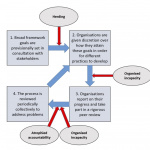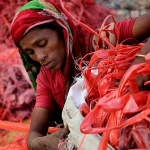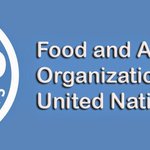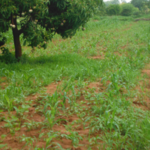Owing to government mandates and subsidies, electric cars have become popular, and as long as European consumers pretend the electricity to power them does not come from fossil fuels we can feel like we are helping the environment.
No one can ignore the environmental apocalypse of the batteries, though.
EU demanding 30,000,000 electric cars by 2030 is a disaster for batteries in landfills because battery recycling uses smelting, which loses so much lithium and other raw materials while requiring so much energy to get even that it is an environmental negative. Advanced processes can…
Policy
The UK Modern Slavery Act 2015 requires organisations to certify that they protect individuals in their organisations and supply chains from slavery anywhere along their supply chain, from raw material extraction to the final customer, for the purpose of service provision or production.The UK government claims this protects companies and institutions from reputational damage and promotes sustainability but even universities, which should have the easiest time complying, are unable to keep up with the bureaucratic demands.
Government believed that by creating a regulatory requirement, the…
Europeans are about to get a lot less coffee from Africa, because the company imported it will now be liable for any environmental damage claims made by environmental NGOs about the farming practices in Africa.
That is the problem with Germany's new Supply Chain Act, warn critics. By making corporations liable for health and environmental damages caused along the entire supply chain, companies will be open to unlimited financial risk if they can't force their suppliers to use only pesticides that Germany likes. Or refuse to fill out more paperwork for foreign governments.
While the public…
Extreme shortages of toilet paper, pasta and other pantry products defined the early weeks of the COVID-19 pandemic for many shoppers around the world. Availability of most these goods has returned to normal.
But not for baking goods – flour in particular.
In Britain the flour shortage has led to the thousand-year-old Sturminster Newton Mill, established in 1016, cranking back into production. Sales by small artisan outfits – such as the Shipton Mill, mentioned in the Domesday Book of 1086 – have surged. It’s the same in France.
So why are there flour shortages from Europe to the United…
Today there are 257 million people in Africa experiencing hunger, and successive poor harvests in recent years mean the situation is getting worse. According to Famine Early Warning Network, an organization providing early warning and analysis on acute food insecurity in Africa, large parts of Eastern and Southern Africa are now in “crisis” and heading toward famine.
Drought and political unrest are the most widely cited causes of this humanitarian catastrophe. But behind these causes is an alliance of deep-pocketed NGOs and highly politicized UN agencies, with the UN Food and Agriculture…
After years of delay, Kenya is set to lift its ban on GMOs. Facing down pressure from EU officials and a massive anti-GMO propaganda campaign by EU-funded NGOs, the East African country will soon set the regulatory requirements for the commercialization of genetically modified crops.[1] In doing so, Kenya will join the small band of other African nations (South Africa, Nigeria, Burkina Faso, Egypt and Sudan) that have defied EU dictats in order to allow their farmers to use the same modern agricultural technologies that farmers in North and South America, Asia, Australia, and even parts of…





